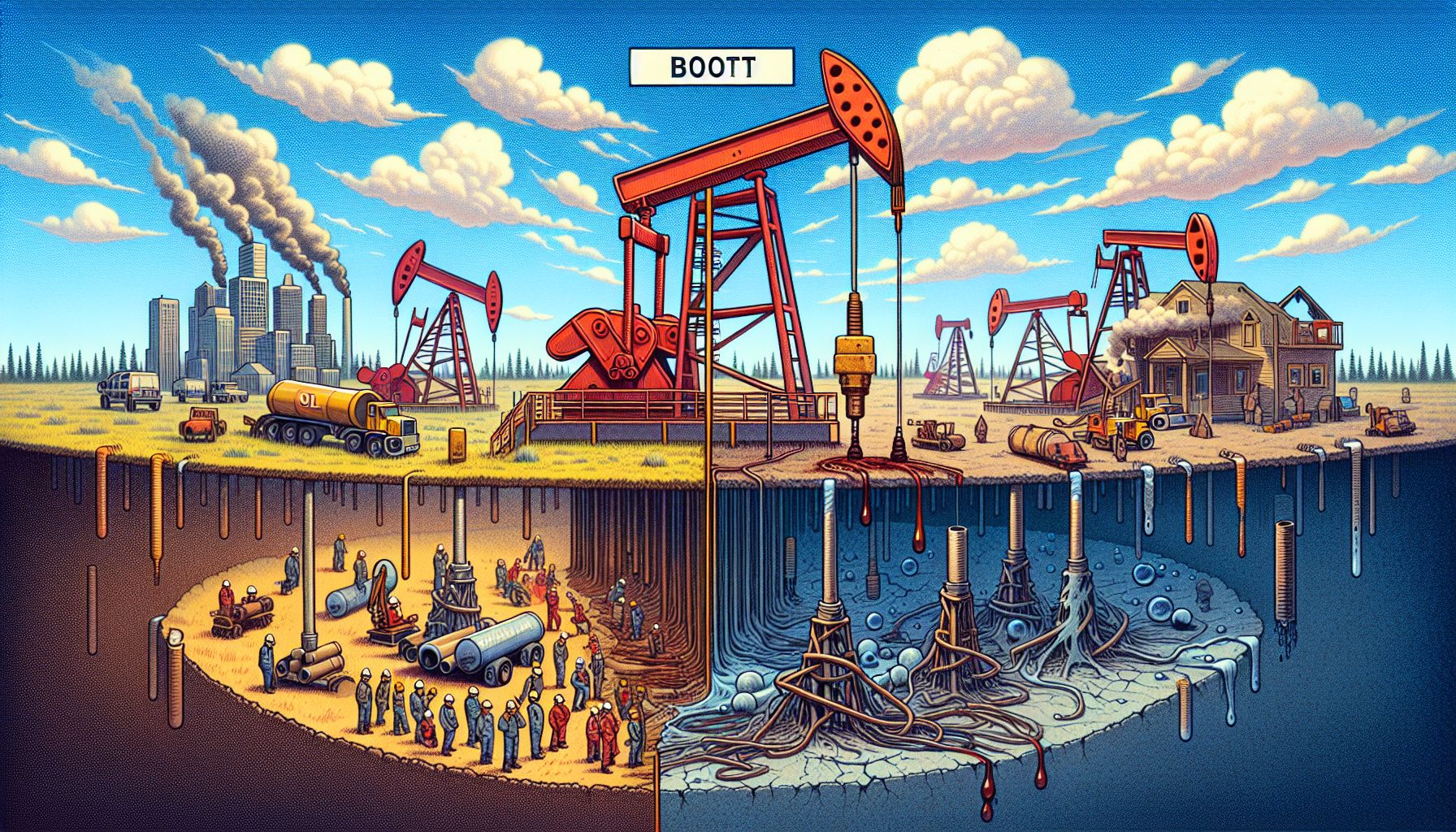
With vast reserves of oil and gas, Canada has long been a major player in the global energy market. From the pristine landscapes of Alberta’s oil sands to the offshore drilling projects in the Atlantic, the oil and gas industry has shaped the nation’s economy for decades. But this seemingly unstoppable force has not been without its fair share of challenges and controversies. In this article, we will take a closer look at the intricacies of Canada’s oil and gas industry, exploring its journey through boom and bust cycles, environmental concerns, and its impact on the local communities.
Canada’s oil and gas industry has experienced numerous boom cycles, propelled by skyrocketing oil prices and the ever-increasing global demand for energy. These boom periods brought unprecedented economic growth, job opportunities, and revenue for the government. Alberta’s oil sands, in particular, emerged as a major contributor to the nation’s economy during these prosperous times. With vast reserves waiting to be tapped into, the oil sands promised riches and prosperity for both the industry and the people.
However, with the boom came significant challenges. The extraction and processing of oil sands are known to have a detrimental impact on the environment. The process of separating bitumen from sand requires large amounts of water and energy, resulting in the emission of greenhouse gases. Moreover, the exploration and transportation of oil and gas have raised concerns about potential spills and accidents that could harm the local ecosystems.
In recent years, the oil and gas industry in Canada has faced a series of setbacks. Plummeting oil prices, pipeline regulatory battles, and shifting global dynamics have contributed to a period of financial strain. With the collapse of oil prices, projects were put on hold or even canceled, leading to widespread job losses and economic uncertainty. The industry, which once thrived, suddenly found itself in a state of uncertainty and caution.
Despite the challenges, Canada’s oil and gas industry remains a vital part of the nation’s economy. The revenue generated from the sector contributes to infrastructure development, healthcare, and education. It also plays a significant role in ensuring energy security for the country. However, there is an ongoing debate about the future of the industry. With the increasing global focus on renewable energy and the urgent need to combat climate change, some argue that Canada should shift its investment and focus towards cleaner alternatives.
The transition to cleaner energy sources is not a simple task. The oil and gas industry has deep roots in Canadian society, providing jobs and economic stability to many communities. Efforts to transition away from fossil fuels must be done in a manner that minimizes the impact on these communities. Additionally, investing in renewable energy technologies requires significant resources and infrastructure development. It is a complex and challenging endeavor that requires careful planning and collaboration between industry, government, and communities.
In conclusion, the oil and gas industry in Canada is a complex and contentious topic. It has brought both immense prosperity and significant challenges to the nation. As we navigate the uncertainties of the present and the future, finding a balance between economic growth and environmental sustainability is crucial. Canada has the potential to lead the world in renewable energy innovation while still responsibly harnessing its oil and gas resources. The path forward may not be easy, but with collective efforts and a commitment to a greener and more sustainable future, Canada can continue to thrive while protecting its natural treasures.







